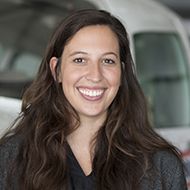Daytrip to Big Bear Mountain Resort
Skiing in Southern California
No matter your opinion of Southern California—heaven on earth or traffic-ridden nightmare—you can’t beat its year-round proximity to a vast variety of adventures. In the winter months, with snow and surf both easily accessible by car, general aviation puts those adventures within even closer grasp.
On a recent perfect Southern California day, flight instructor (and newly hired SkyWest pilot) Mark Cole, AOPA Senior Photographer Chris Rose, and I hopped in a Sling TSi at the Sling Pilot Academy in Torrance, California, with our sights set on a day of snowboarding and skiing at Big Bear Mountain Resort. The drive from Torrance up to the little California mountain town takes about three hours if you’re lucky, and longer on weekends, if the snow is particularly good, or during rush hour. The flight to Big Bear City Airport takes less than an hour.
We requested flight following on the ground at Zamperini Field, which is far easier than picking it up in the air, and we got our squawk code and first frequency before we reached the run-up area. Even with the benefits of GPS navigation, much of Southern California VFR flying still heavily relies on VORs as waypoints. To stay out of everyone’s way (and follow the route approach expected), we headed direct to SLI VOR after a right downwind departure from Runway 29R.
We then climbed to 9,500 feet msl, the cruising altitude that made the most sense for Big Bear’s 6,750-foot elevation, and flew next to the Paradise VOR. Our route was peppered with GA-friendly airports and at our altitude, we’d have had no issue finding an airport to land at during an emergency. I love (and prefer) the low and slow life, but in a busy area like Los Angeles, it just makes sense to fly a little higher—not necessarily 9,500 feet msl, but consider adding a couple thousand extra feet than you would if you were over Midwestern farm fields.
The flight was smooth despite incoming Santa Anas—the hot desert winds that suck the moisture out of the LA basin and are associated (at least in local myth, and sometimes statistically) with an increase in the homicide rate. It was quiet in the pattern for Big Bear, and we took the time to fly over the resorts and check out the snowy slopes from the air.
Big Bear can be a tricky airport, but with cool, thick air and a slight breeze right down the runway, the landing was smooth as could be. If you go in the summer, though, beware—density altitude picks up quick and it gets bumpy. After securing the airplane, we changed into snow gear and waited for the free local shuttle that stops right at the airport. Ubers/Lyfts are nearly nonexistent though there is a local taxi service. Since the taxi cost more than the free shuttle, we decided to wait at the airport even though it was a slower process. (If you make this trip and are pressed for time or lack the patience for public transportation, it might be better to pre-book a taxi.) Big Bear has two options for snow sports—Bear Mountain and Snow Summit. We went with Bear Mountain since it’s closer to the airport.

We flew up on a weekday and gear pickup was smooth and easy. With lessons and green routes for beginners and double black diamonds for the pros, the resort offers something for every skill level. I stuck entirely to the beginner routes and even with the steep learning curve of a novice, I had a great time falling down the mountain. For the completely snow averse, there is a cozy patio with music, food, and both alcoholic and pilot-in-command-friendly beverages.
We had a solid four hours in Big Bear, and after lunch, we headed back to the airport for a simple flight home. In the winter months, density altitude is not much of a factor, but even on that cool afternoon, the density altitude was higher than field elevation. Those Rotax engines are impressive—with three folks onboard, a snowboard, and many dozens of pounds of camera gear, we still took off with ease.
The flight back to Torrance took less than an hour. That route always reminds me of the top of a roller coaster—you’re descending almost the whole flight back. We landed with hours of sunlight to spare and time to make a full day even fuller. Throughout the adventure, we were never in a rush, and this very attainable trip from Southern California is even more attainable if you split the cost (and share the fun) with a couple of friends. The hardest part of this whole journey? Making sure there was snow on the mountain.
If you go, let me know on Instagram (@loubelle) or shoot me an email.








